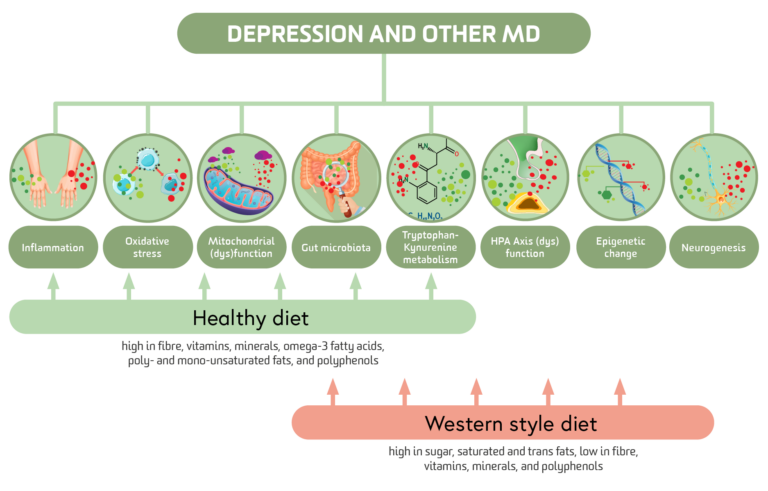Home / Healthcare & Medicine / Therapy / Introduction to Nutritional Psychiatry: Nutri-Psyche / Overview of the biological mechanisms linking diet and mental and cognitive health
This article is from the free online
Introduction to Nutritional Psychiatry: Nutri-Psyche


Reach your personal and professional goals
Unlock access to hundreds of expert online courses and degrees from top universities and educators to gain accredited qualifications and professional CV-building certificates.
Join over 18 million learners to launch, switch or build upon your career, all at your own pace, across a wide range of topic areas.





